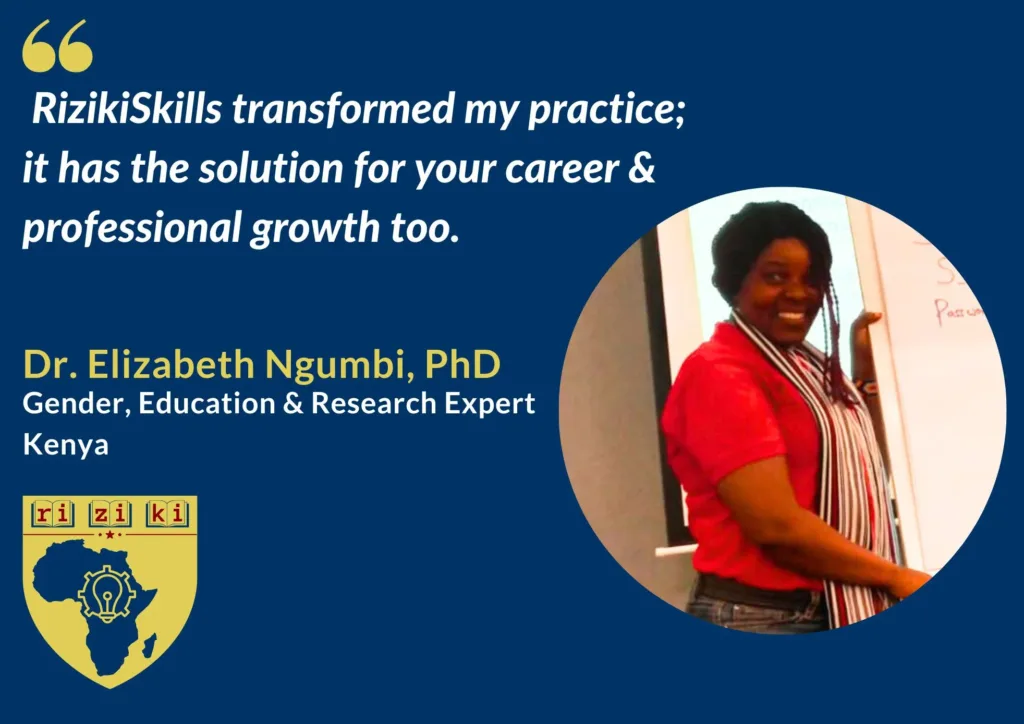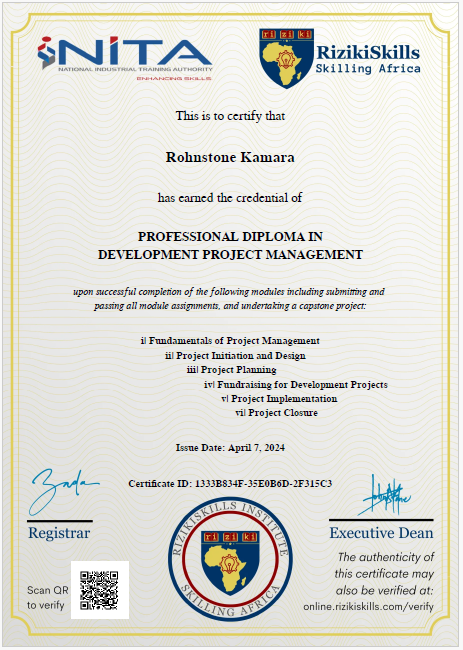Professional Diploma in Monitoring and Evaluation
In today’s data-driven world, understanding your program’s performance is critical for making informed decisions, securing funding, and driving positive change. This 8-month program equips you with the essential skills to assess the effectiveness and impact of programs and projects.
Gain a comprehensive understanding of M&E frameworks, methodologies, and tools. Learn how to design effective monitoring and evaluation systems, collect and analyze data, and utilize findings to improve program implementation. Develop strong skills in reporting, communication, and knowledge management to effectively share insights with stakeholders.
Whether you work in NGOs, government, or the private sector, this diploma will enhance your ability to measure and demonstrate the value of your work. Meet and interact with students and instructors from diverse backgrounds, creating a rich pool of professionals to learn and grow with.
- Develop a strong foundation in monitoring, evaluation, and learning principles
- Master data collection, analysis, and interpretation techniques
- Enhance your ability to design and implement M&E systems
- Enhance your ability to measure program impact and inform decision-making
- Advance your career in the development sector
This program is designed for professionals working in various sectors, including:
- NGOs/nonprofit organizations
- Government agencies
- International development organizations
- Private sector companies
- Research institutions
Participants benefit from a blend of theoretical knowledge and practical application, enabling them to apply their learning to real-world challenges.
8 months (six months [cohort-based] of accelerated learning and a two-month capstone project).
- Attend live online, expert-led classes (12 Saturdays)
- Complete self-study course materials (at your own pace), and submit assignments via RizikiLMS
- Instructor-marked assignments (CATs)
- Final exam (online)
- Capstone project (after coursework)
Proof of prior learning including certifications, a diploma or first degree from a recognized institution. Relevant working experience is desirable BUT NOT mandatory;
Program fees: $1000 (Ksh. 100,000)
Fees are payable in 3 installments (1st-50%, 2nd-30%, 3rd-20%)
Certification
Upon completion, you will receive an e-verifiable credential (shareable on LinkedIn) and an official transcript.
Frequently Asked Questions
A Professional Diploma is a qualification that provides focused, job-oriented education or training in a specific field.
It takes less time to complete than a typical diploma, bachelor’s or master’s degree (often 6 months to 1 year) and quickly equips you with the knowledge and skills needed to excel in a particular profession or area of work.
- Focus: Professional diplomas have a narrower focus on practical skills and knowledge relevant to a specific job or industry. Degrees offer a broader academic foundation in a chosen field.
- Time Commitment: Professional diplomas typically require less time to complete compared to degrees.
- Career Path: Professional diplomas often target specific job roles, while degrees can prepare you for a wider range of careers within a field.
- Career Advancement: Professional diplomas can equip you with the skills and qualifications needed for promotions or career changes.
- Shorter Time Commitment: Compared to degrees, you can gain valuable skills and enter the workforce faster.
- Cost-Effective: Professional diplomas are generally less expensive than degrees.
- Industry-Specific Knowledge: Gain targeted knowledge and skills relevant to your desired job or industry.
- Individuals seeking a career change: Gain the qualifications needed to enter a new field.
- Professionals seeking to upskill or specialize: Enhance your skillset and advance within your current industry.
- Recent graduates: Supplement your degree with job-ready skills.
- People looking for a faster path to employment: Enter the workforce quicker with focused training.
- Your career goals: Align your diploma with your desired job or industry.
- Entry requirements: Ensure you meet the prerequisite qualifications.
- Program content and reputation: Research the program’s curriculum and the institution offering it.
- Delivery format (online, part-time, hybrid, full-time): Choose a format that suits your learning style and schedule.



